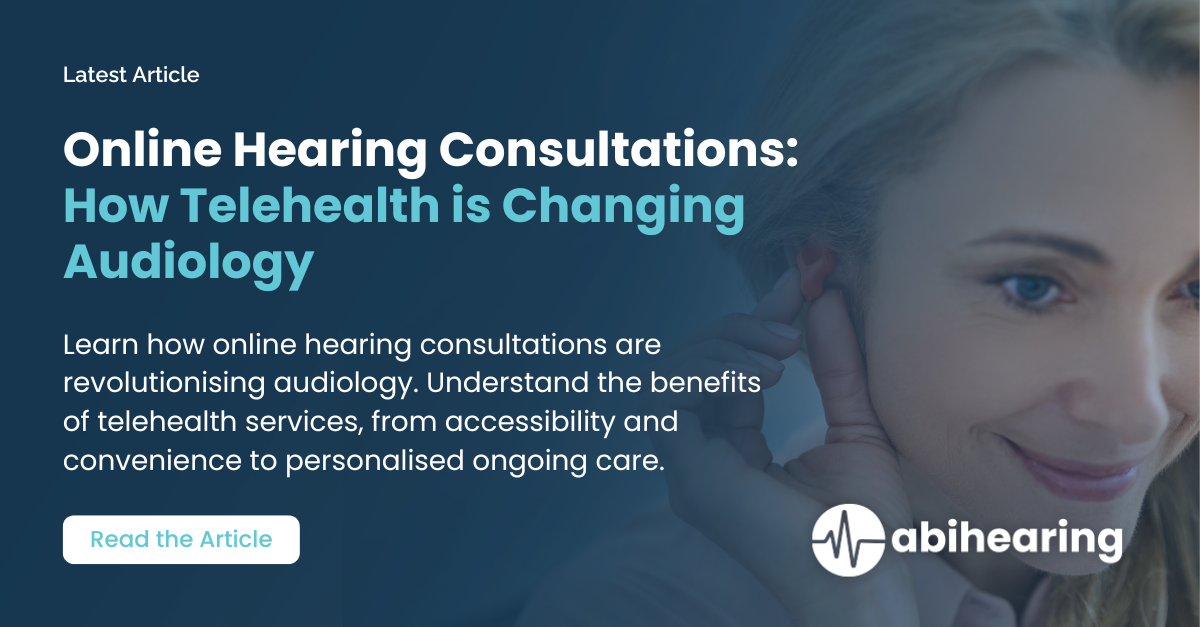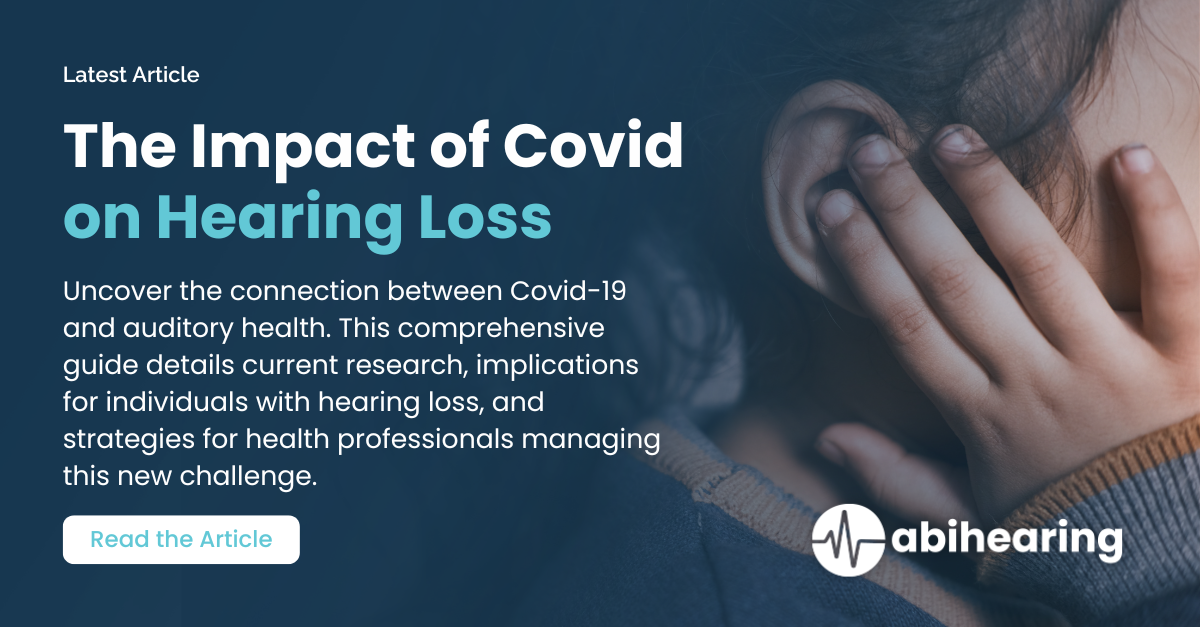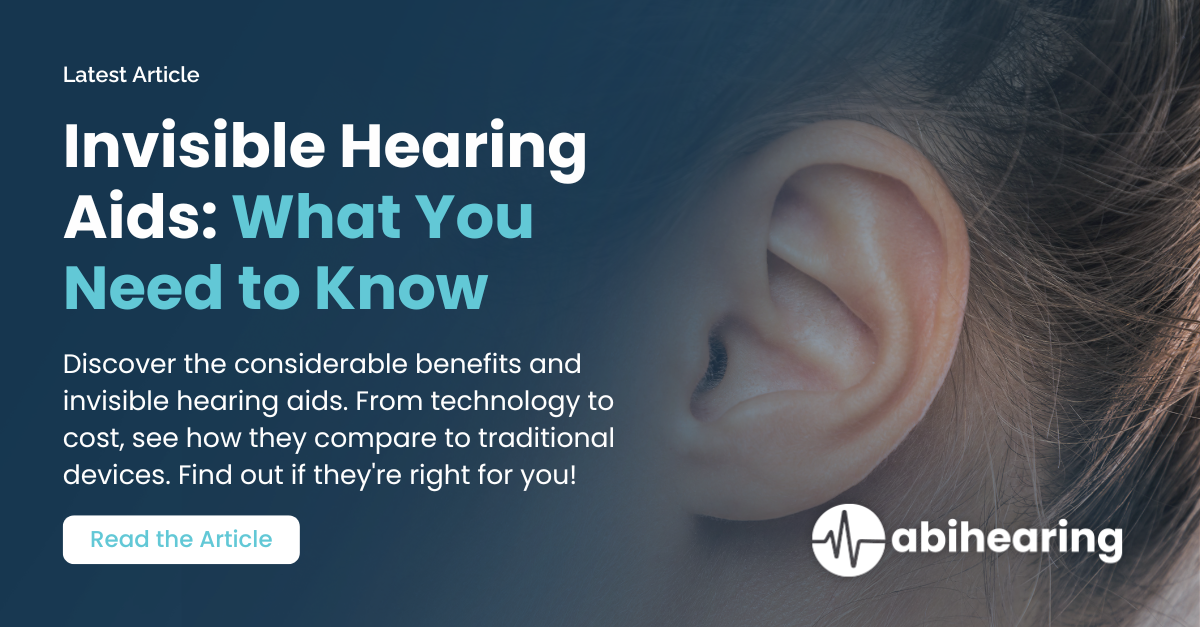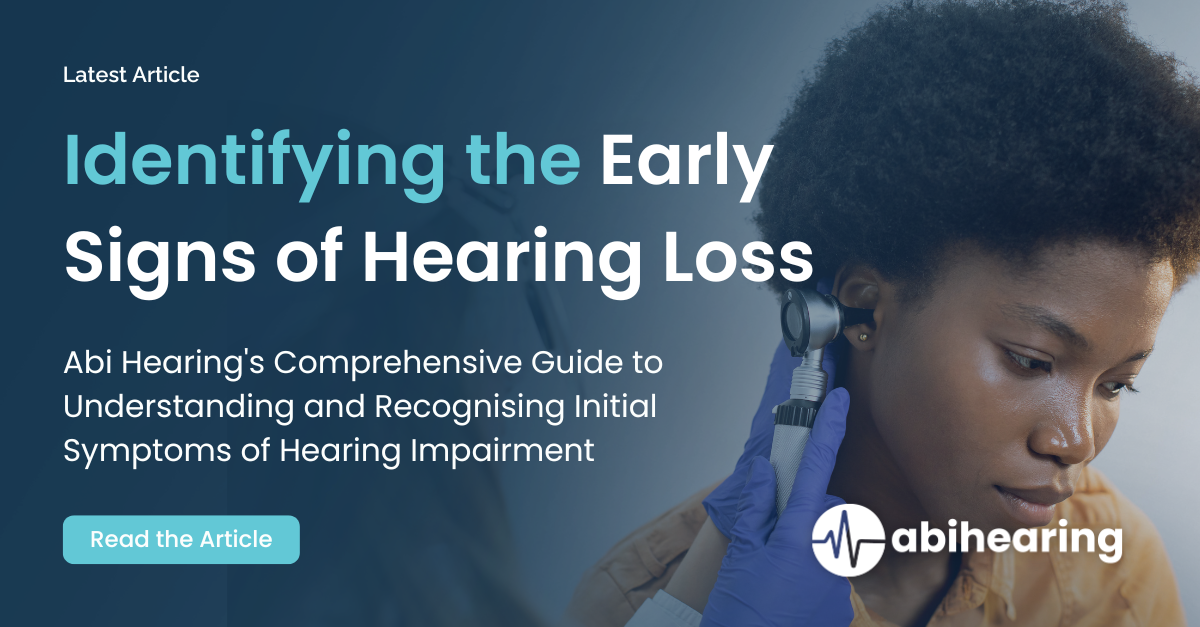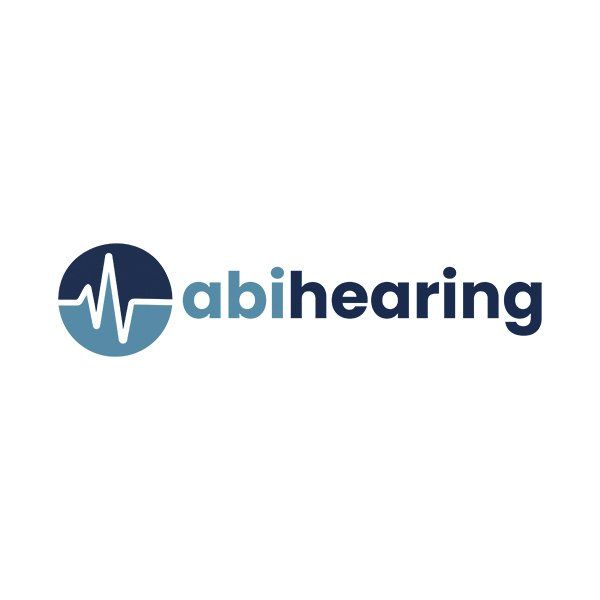What is a Cochlear Implant?
Cochlear implants use electrical stimulation to send sound to the brain. Traditional hearing aids are non-invasive devices which amplify sound to make it louder and more audible, and rely on a residual hearing of the user. Cochlear implants are a permanent surgical solution for more complex types of hearing loss or when hearing aids are no longer providing enough benefit.
How does a Cochlear implant work?
A cochlear implant system has two parts:
- The external processor worn on the head/outer ear
- The implant placed under the skin and electrode in the inner ear (cochlea)
Together, these components stimulate the hearing nerve directly to send acoustic signals to the brain for interpretation. Essentially, the implanted electrode takes the place of the thousands of hair cells in the cochlea that typically transduce sound. When these hairs are no longer working effectively or being aided sufficiently by traditional hearing aids, this can be an alternative solution. An implant does not restore normal hearing. Instead, it can give a deaf person a useful representation of sounds in the environment and help him or her to understand speech.
How is the sound sent to the brain?
Sounds are picked up by the sound processor which sits behind the ear. These sounds are converted into a digital code by the processor which is sent to the implant under the skin. The implant converts the code into electrical signals and sends it down the electrical array which is in the recipient’s cochlea. When the signal is received by the array, it stimulates the nerve fibres in the cochlea and the signals are recognised by the brain as sound.
What are the benefits?
Cochlear implants have been designed to provide better clarity of sound and speech understanding. Making the decision to get an implant is a big one and will involve determination of whether you will be a suitable candidate. This relies on a mix of factors including but not limited to: your hearing thresholds, anatomical makeup and current hearing aid benefit. The first step is often to see an audiologist and Ear Nose and Throat specialist for a personalised consultation. Contact us at Abi Hearing to find out more.
Schedule An Appointment With Our Hearing Health Experts Today!
There are a few different types of Bulk Billed Hearing Tests. The most common type is an audio diagnostic test, which is used to screen for hearing loss. This type of test usually takes around 30 minutes to complete.
If you are interested in getting a Bulk Billed Hearing Test, talk to the team at Abi Hearing. They will be able to tell you if you are eligible for a test and book your appointment at our Bundoora Audiologist Clinic.
The entire team at Abi Hearing looks forward to meeting you. We are ready to answer your questions, fully understand your hearing challenges, and introduce you to exciting new technologies that can give you the excellent hearing you've been wanting.
Book an Appointment
We will get back to you as soon as possible.
Please try again later.
Read the Latest Articles for Abi Hearing Clinic's Audiology
& Hearing Loss Experts
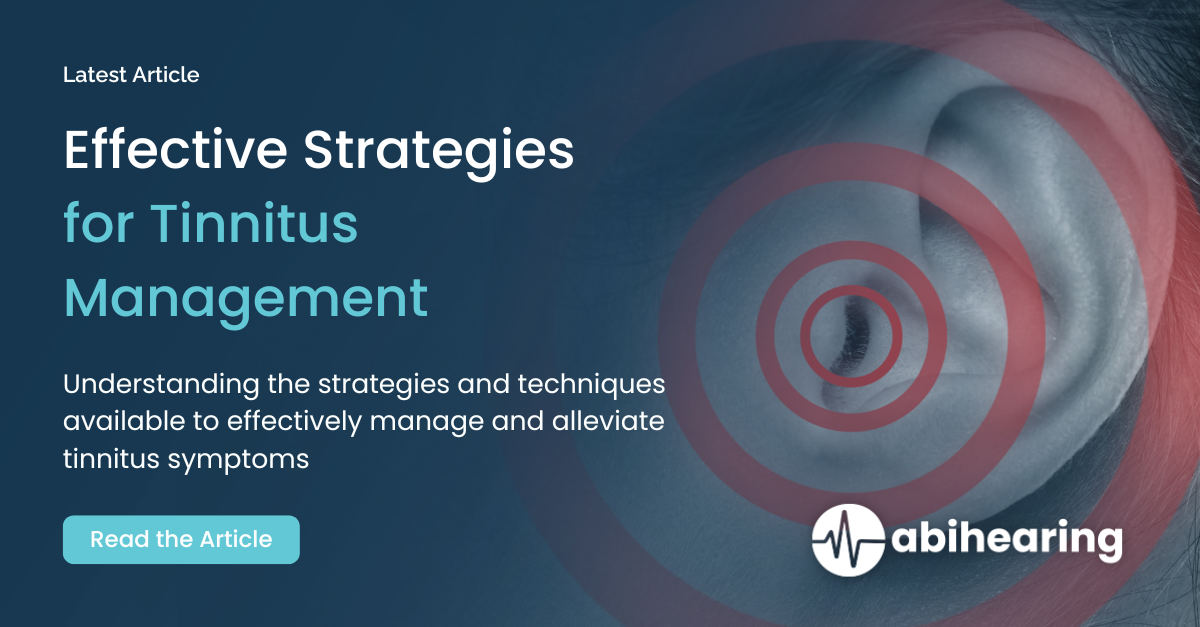
Common Questions About Hearing Aids
-
What does a hearing aid do?
A hearing aid is a device worn behind the ear, in the outer ear canal, or in the middle ear to amplify sounds. It can be used to improve mild to moderately-severe losses due to sensorineural hearing impairment and conductive hearing impairment. Some hearing aids also have a built-in T-coil (telecoil) which can be used to improve the listening experience for people with single-sided deafness, or when there is a lot of noise present.
Hearing aids make it possible for people with mild to severe hearing loss to hear sounds more clearly. There are different types of hearing aids that can be used in either one or both ears.
A digital hearing aid is an electronic device that amplifies sound. Digital hearing aids convert sound waves into electrical signals that are then amplified. This type of hearing aid is a more modern technology offering greater benefits to users.
-
How do I know if I need a hearing aid?
If you have trouble hearing, or if people complain that you're turning the TV volume up too high, you may need a hearing aid. A hearing test can confirm whether you have a problem.
-
How do I know which type of hearing aid is right for me?
Your audiologist will help you choose the type of hearing aid that's best suited for your needs and lifestyle. Factors that will be considered include the severity of your hearing loss, your listening environment, and your budget.
-
What are the different types of hearing aids?
The four main types of hearing aids are:
1. Behind-the-ear (BTE)
This is the most common type of hearing aid. It sits behind the ear and has a clear plastic tube that goes down into the ear canal. BTEs are available in a variety of styles and colors, and are the most durable type of hearing aid.
2. In-the-ear (ITE)
This type of hearing aid is custom made to fit snugly in the outer part of your ear. ITEs are less visible than BTEs, but they may not be as durable.
3. In-the-canal (ITC) and completely-in-the canal (CIC)
These are the smallest and most discreet type of hearing aid. ITCs and CICs sit in the ear canal and are not visible once they are in place. They can be more difficult to adjust than other types of hearing aids.
4. Invisible Hearing Aid (IHA)
An invisible hearing aid is designed to be worn for extended periods of time to minimise the hassle of managing your hearing health. The devices are inserted deep into the canal, by a qualified Audiologist and remain there for their lifecycle.
-
What are the different parts of a hearing aid?
The different parts of a hearing aid include:
1. The microphone
This is the part of the hearing aid that picks up sound from the environment.
2. The amplifier
This part of the hearing aid increases the volume of sound that is picked up by the microphone.
3. The receiver
This is the part of the hearing aid that sends sound to your ear.
4. The battery
This powers the hearing aid. Hearing aids use either disposable or rechargeable batteries.
5. The processor
This controls how the hearing aid sounds and adjusts to different environments.
6. The casing
This is the outer shell of the hearing Aid.
-
What are the different features of a hearing aid?
There are many different features that you can choose from when you buy a hearing aid. Some common features include:
1. Volume control
This lets you adjust how loud or soft the sound is coming through the hearing aid.
2. Tone control
This allows you to adjust the tone of the sound, making it sound more natural.
3. Noise reduction
This feature reduces background noise, making it easier to hear conversation.
4. Directional microphones
This feature allows you to adjust the hearing aid so that it picks up sound from the front, making it easier to hear in noisy environments.
5. Telecoil
This is a special setting that helps you hear better on the telephone and in places where there is a loop system set up (such as a movie theatre or museum).
-
What are the different types of hearing loss?
There are two main types of hearing loss: conductive and sensorineural.
1. Conductive hearing loss
This type of hearing loss occurs when there is a problem with the structure of the ear or the way that sound waves are conducted through the ear. Conductive hearing loss can be caused by things like wax build-up, infection, or damage to the ear.
2. Sensorineural hearing loss
This type of hearing loss occurs when there is a problem with the inner ear or the way that the brain interprets sound. Sensorineural hearing loss can be caused by things like age-related hearing loss, noise exposure, or injury.
-
What are the benefits of using a hearing aid?
There are many benefits to using a hearing aid. Some of the most important benefits include:
1. Improved communication
Hearing aids help you hear better in both quiet and noisy environments, making it easier to communicate with others.
2. Improved quality of life
Hearing aids can help you stay connected to your loved ones and participate in activities that you enjoy.
3. Improved safety
Hearing aids help you hear warning signals and other important sounds, making it easier to stay safe in your environment.
4. Improved mental health
Research has shown that using a hearing aid can improve your mood and overall well-being.
5. Improved self-confidence
Using a hearing aid can help you feel more confident and social, which can lead to a better quality of life.
6. Reduces the risk of developing dementia
Research has shown that using a hearing aid can reduce the risk of developing dementia by up to 50%.
7. Reduces the risk of falling
Hearing aids help you hear better in your environment, which can help you stay safe when walking or climbing stairs.
8. Reduces the risk of social isolation
Hearing loss can often lead to social isolation, but using a hearing aid can help you connect with others and stay involved in your community.
9. Affordable
Many health insurance plans cover the cost of hearing aids, making them more affordable for those who need them.
10. Customizable
Hearing aids come in many different styles and colours, so you can find one that fits your personality and lifestyle.
-
Which hearing aids can I choose from at Abi Hearing?
-
How do I know if I need a hearing aid?
We all know that hearing loss can cause many problems. It can be a serious issue for those who work in noisy environments, in the office or on the construction site, or an inconvenience for someone wanting to tune into their favourite TV show. If you have any of the following symptoms, it is time to schedule an appointment with your audiologist:
Any noticeable change in your hearing
You have a hearing loss that is severe enough to interfere with your life
You have tinnitus
You have sudden and unexplained hearing loss
You are not able to hear a conversation from across the room or in a quiet room
You are missing conversations on your Phone or in the car
You experience dizziness, vertigo, or ringing in the ears
If you are experiencing any of these symptoms, it is important to schedule an appointment with your audiologist. The sooner you get treatment, the easier it will be to manage your symptoms and the less they will impact your life.
-
Can hearing aids cause vertigo?
There is no evidence to suggest that properly fitted hearing aids can cause vertigo. However, if you are experiencing vertigo or other dizziness-related symptoms, it is important to speak with your audiologist. There may be another underlying cause for your symptoms that needs to be addressed.
-
How often do hearing aids need to be replaced?
Hearing aids do not need to be replaced on a regular basis. However, over time they may start to lose their effectiveness or become damaged. If you notice that your hearing aids are not working as well as they used to or if they are damaged, it is important to see your audiologist for a replacement.
-
Can hearing aids cause headaches?
There is no evidence to suggest that properly fitted hearing aids can cause headaches. However, if you are experiencing headaches, it is important to speak with your audiologist. There may be another underlying cause for your symptoms that needs to be addressed.
-
Are hearing aids waterproof?
Most hearing aids are not completely waterproof, but most models come with a water-resistant coatings that can protect them from light rain or accidental exposure to water. It is important to remove your hearing aids before swimming or showering.
-
This Page Talks About:
Vestibular systems, unbiased advice, trained, tinnitus management, tinnitus, tests, test, support, specialists, services, seek, ringing, request, range, quality, qualified, purchase hearing aids, professional, patients, melbourne vic, melbourne, life, latest technology, latest equipment, independent audiologists, independent, helpful, hearing tests, hearing test, hearing services, hearing needs, hearing loss, hearing health, hearing concerns, hearing care, hearing australia, hearing assessment, hearing aids, hearing aid manufacturer, hearing aid, hearing, hear, health, friendly environment, free online hearing test, free hearing check, free hearing, foster, ears, ear wax removal, ear wax, ear, doctors, devices, contact, communication, clinic, clients, children, businesses, better hearing, best audiologists, australia, audiology, audiologists, audiologist near me, audiologist, appointment, aids, aid brands, ages, advice, adults.
Subscribe to our newsletter to stay up to date with our latest offers.
Contact Us
We will get back to you as soon as possible.
Please try again later.
Williamstown Hearing Clinic
54 Electra Street,
Williamstown, Victoria
3016
Business Hours:
Monday to Friday
9.00am to 5.00pm
Phone: (03) 9399 9536
Email: info@abihearing.com.au
North Melbourne Hearing Clinic
Suite 228/55 Flemington Rd,
North Melbourne, Victoria
3051
Business Hours:
Tuesdays and Fridays
9.00am to 5.00pm
Phone: (03) 9326 5334
Email: info@abihearing.com.au

